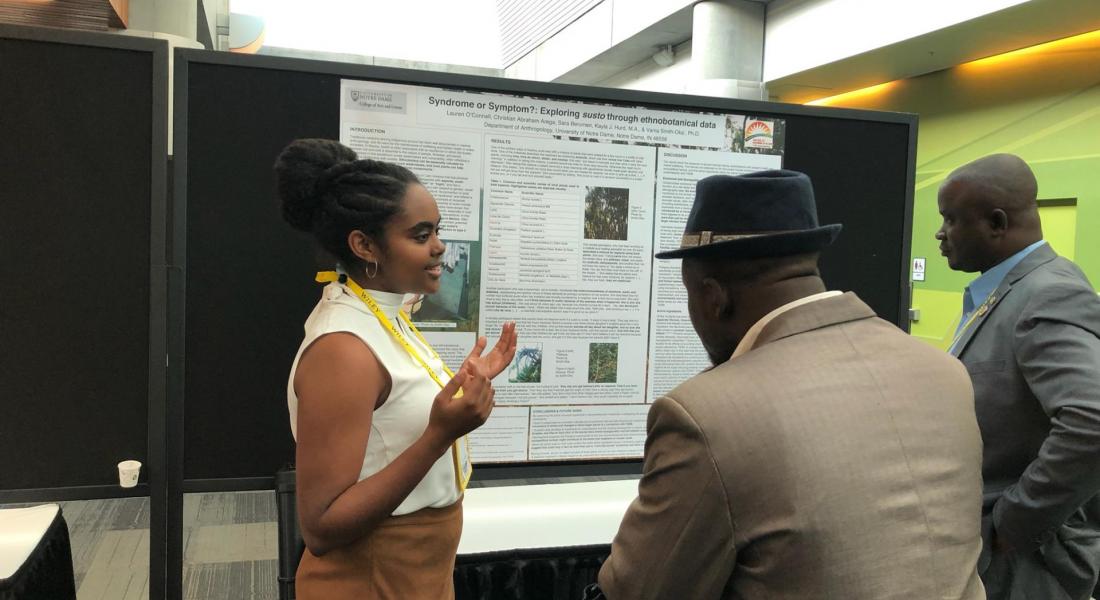
I will be honest, when I boarded the plane on November 14th, 2018 to travel cross-country to California for the annual American Anthropological Association (AAA) conference, I did not have quite as high expectations or excitement as one who is presenting their research should have. Instead, I was filled with nervous energy and uncertainty about whether I was even qualified to be in the position in which I found myself. Despite what I was feeling, I showed up extremely prepared to my poster session, expecting that I would talk to a few people, if even that, who would be moderately interested in what I had to say. To my pleasant surprise, I could not have been more wrong. In the duration of two hours, I talked about my research to more people with contagious enthusiasm than I could count. Sharing my findings with these enthused professionals was unlike the biochemistry poster sessions that I was so used to. It was more than just a platform to share what I learned, it was also an opportunity to learn from them and hear about their experiences, as well as an opportunity to be challenged to think deeper about details that I had glossed over. It was definitely the most exhilarating presentation experience I have ever had.
Aside from the poster session itself, I was able to attend different panels and hear from some of the best medical anthropologists about what they do. Attending these panels opened my eyes to what it means to be a practicing anthropologist and the kind of changes one can effect. One session that I attended struck a chord deep in my soul; the round table discussion was titled “Theoretical Perspectives on Health and Social Justice”. Being a biochemistry major with pre-med intent, ‘health’ has always been an area of interest to me. Moreover, being the woman I am, social justice in the context of finding innovative ways to provide access to good healthcare to those who need it the most is always at the forefront of my mind. For some reason, these seemed to me to be irreconcilable interests; I just could not figure out how to make the puzzle pieces fit together. But after speaking with one of the practicing anthropologists from the panel (who has now become a mentor), he helped me to reorient the pieces and realize that they actually melded rather perfectly in the field of global health; he quite literally gave a voice to my soul.
I went to the conference with low expectations of what I would be able to give in my presentation, and what I could gain from the people there. But when I boarded the plane back to South Bend on November 18th, I was filled with gratitude for the past three days an abundance of enthusiasm and excitement about what the future has in store.





